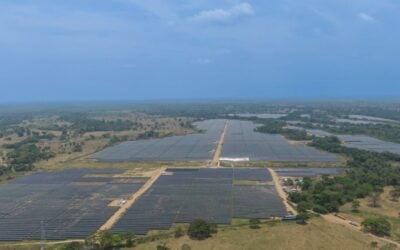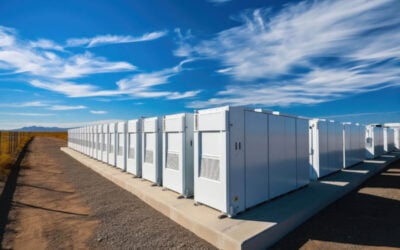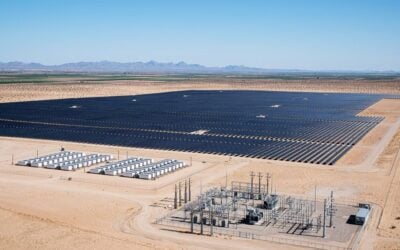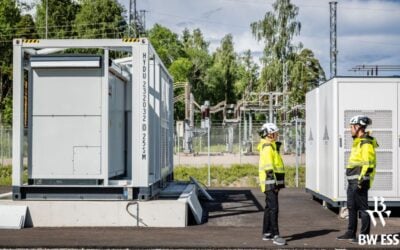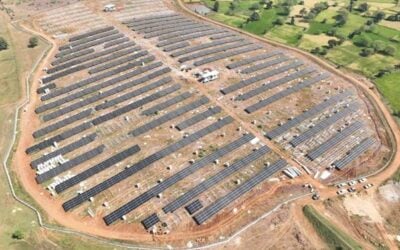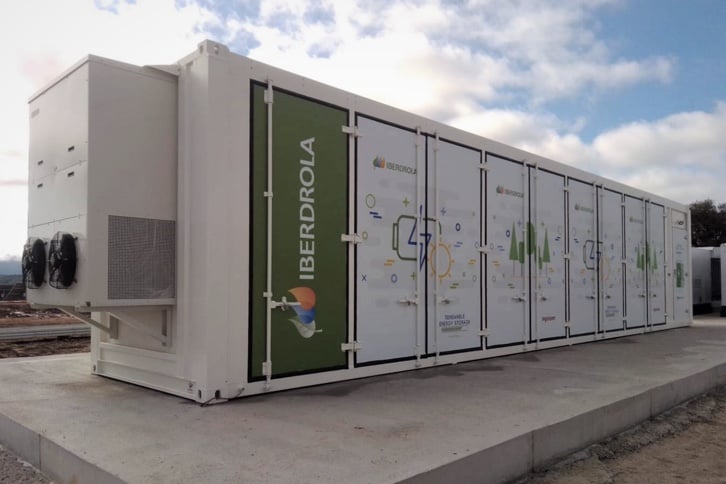
Ingeteam has announced that it was supplier of the full battery energy storage system (BESS) solution to Spain’s first-ever solar PV plant equipped with energy storage from commissioning.
Energy conversion equipment specialist Ingeteam was chosen by vertically-integrated electricity company Iberdrola to work on the solar project, in the town of Almaraz in Spain’s Extramadura region, some 200km west of the country’s capital, Madrid.
Enjoy 12 months of exclusive analysis
- Regular insight and analysis of the industry’s biggest developments
- In-depth interviews with the industry’s leading figures
- Annual digital subscription to the PV Tech Power journal
- Discounts on Solar Media’s portfolio of events, in-person and virtual
Iberdrola brought Arañuelo III, the 40MW PV plant online in September 2021. The plant is sited at Iberdrola’s Campo Arañuelo complex, which in total features three solar power plants with a combined generation capacity of 143MW.
Iberdrola has invested about €80 million (US$90.1 million) in the complex, which has employed about 500 workers during construction and the company contracted “almost all” field work and civil engineering out to local companies.
Arañuelo III includes a 3MW BESS with 9MWh capacity. Ingeteam was also Iberdrola’s technology partner for the Arañuelo I and II PV plants, with the scope of contracts including PV inverters, transformers, power plant controllers and commissioning.
For the solar-plus-storage plant, Ingeteam supplied lithium-ion batteries, integrated them into 45-foot containers, supplied power converters, the SCADA monitoring system and then carried out civil works, assembled the storage system onsite and started it up into operation. The company is also responsible for digital protection and controls at the site’s substation.
Battery units of 1.5MW / 4.5MWh each are placed into two 45-foot containers at the site.
Ingeteam noted that the BESS is DC-coupled to the solar PV, meaning the batteries are directly connected to the plant’s inverters.
DC-coupled solar-plus-storage projects have started to become prevalent in key regional markets of the US, offering advantages including recapturing solar production from outside peak generation hours, which would be otherwise clipped and lost.
The DC-coupling also minimises losses of energy during charging of batteries from the PV, as the electricity flows directly through the DC-DC converter. During discharge it also requires less transformer equipment than an AC-coupled system, increasing efficiency.
Ingeteam said its new product, the INGECON SUN STORAGE Power DC-DC series battery converter was used on the project. Coupled to the direct current input of a PV inverter, it creates a ‘hybrid central inverter’ directly connected to both PV and BESS equipment, with a single AC output to connect to the LV / MV transformer.
Iberdrola said in September as the project went online that while it is the company’s — and the country’s — first solar-plus-storage system and first renewable energy project coupled with batteries, it is already building a green hydrogen plant in Spain which includes 100MW of solar PV and a 20MWh lithium-ion BESS.
It is also adding a 5MW / 5MWh BESS to a 32MW wind farm in the Basque region, and is planning another similar project in the region. The company is also planning a 12MW BESS install at wind farms on the Spanish island territory of Tenerife.
However, in late September, sister site PV Tech reported that Iberdrola was pausing tenders for goods and services related to renewables projects in Spain after the government introduced new measures aimed at tackling high power prices.
The new mechanisms, brought in after record-breaking wholesale power prices were experience in much of Europe last year, include limits to profits renewable project owners and investors can earn, in place until March 2022.
Iberdrola, which a member of Spain’s Association of Electric Power Companies (AELEC) warned that rules may cause some projects to become unprofitable and would carry out a detailed evaluation on economic viability of projects. It did say however that the decision did not apply to projects backed by auctions and other renumeration frameworks — which are not subject to the government’s new measures.
Meanwhile, a 3GW renewables auction held by the Spanish government at the beginning of last year included eligibility for energy storage to be included, but did not lead to any winning bids for storage.
The country’s National Energy and Climate Plan (PNIEC) published in summer 2020 did target the deployment of 2.5GW of utility-scale battery storage by 2030, and then in February 2021 the government approved an energy storage strategy roadmap which forecast a need for 20GW of storage by 2030 and 30GW by 2050 in order to achieve its carbon neutrality target by the mid-Century point.
Yann Dumont, renewable energy consultant and president of the Spanish Energy Storage Association (ASEALEN) said last year that the strategy was already contributing to interest in the energy storage sector. President of Spain’s national energy storage association AEPIBAL, told this site in June that the country’s renewable strategy, including the energy storage deployment roadmap, is “absolutely achievable”.
Another interesting solar-plus-storage development for Spain was reported by Energy-Storage.news last month: Enel Green Power ordered a vanadium redox flow battery (VRFB) energy storage system from technology provider Largo Clean Energy for installation at a solar plant on the island of Mallorca.

